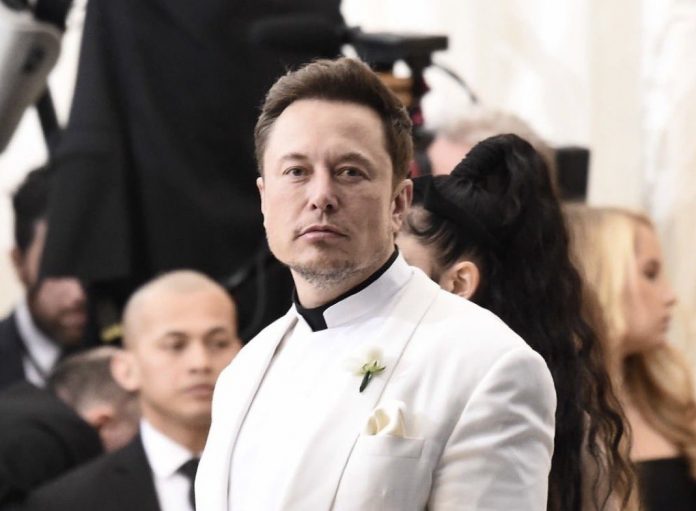Joe Wallace shared this article that examines what would happen if ELON MUSK BOUGHT MSNBC.
Elon Musk’s X-News: The Transformation of MSNBC
In an unexpected twist that sent shockwaves through the media landscape, Elon Musk, the billionaire entrepreneur behind Tesla, SpaceX, and Twitter’s transformation into “X,” emerged as the leading bidder for MSNBC and CNBC. Comcast’s decision to “spin off” its cable news properties came amid declining viewership and shifting market dynamics, creating an opportunity for Musk to step into the media industry. With the Trump Administration poised to take office, Musk’s move was widely viewed as a power play to reshape the U.S. media narrative.
A Bold Acquisition and Immediate Layoffs
True to his reputation as a disruptor, Musk wasted no time making changes. Shortly after the deal closed, Musk announced sweeping layoffs, targeting high-profile MSNBC hosts who had become synonymous with the network’s left-leaning partisanship. Hosts like Rachel Maddow and Joy Reid were among the first to exit, prompting a public outcry from progressives and celebrations from conservatives. Musk cited the need to “reboot the network” as a “neutral platform for real dialogue,” though critics accused him of silencing dissent.
In typical Musk fashion, the firings were handled with tweets, some of which were laced with memes. “Time for fresh voices. Old models are stale. Let’s innovate,” Musk tweeted, signaling a shift in MSNBC’s direction.
Rebranding to X-News
Within weeks, MSNBC was rebranded as “X-News,” aligning with Musk’s broader vision of creating a unified media and technology ecosystem under the X brand. CNBC, meanwhile, was merged into X-News as a business-focused vertical called “X-Biz.” The move was accompanied by the rollout of cutting-edge streaming technology, allowing viewers to interact in real-time with broadcasts, vote on discussion topics, and access AI-generated summaries of complex stories.
Musk’s stated mission for X-News was to “combine free speech with smart curation,” creating a news outlet that embraced diverse perspectives while using technology to root out misinformation. This approach drew both praise and skepticism, with critics warning of the risks of algorithmic bias and editorial manipulation.
Programming Overhaul
X-News introduced a completely revamped programming lineup. Anchors and commentators from across the political spectrum were hired, including several younger, internet-savvy personalities who had built massive followings on social media platforms. Musk tapped into his network of influencers, entrepreneurs, and thought leaders to host shows that emphasized debates, innovation, and solutions rather than traditional partisan bickering.
One flagship program, “The X Factor,” featured debates between high-profile figures from opposing political ideologies, moderated by AI to ensure balanced speaking time. Another show, “Future Frontiers,” focused on technology, science, and global challenges, blending Musk’s personal interests with a broader appeal.
Business Model Shift
Musk introduced a new subscription model for X-News, similar to Twitter’s premium service. Viewers could watch basic content for free but pay for premium features like personalized news feeds, exclusive interviews, and interactive Q&A sessions with guests. Advertising shifted to a performance-based model, with brands only charged when viewers engaged with their ads. The move was hailed as revolutionary in the media space, though traditional advertisers were wary of the change.
Political and Cultural Fallout
The transformation of MSNBC into X-News sent shockwaves through the political establishment. Progressive activists accused Musk of turning the network into a “mouthpiece for authoritarianism,” citing his perceived alignment with Trump. Meanwhile, conservatives celebrated the downfall of what they saw as a bastion of liberal propaganda, though some questioned Musk’s commitment to their cause.
Trump, for his part, hailed the new X-News as “the greatest thing to ever happen to television” during a rally, prompting speculation that Musk would grant the former president significant airtime. However, Musk maintained that X-News would remain independent, pointing out that Trump’s criticisms of his handling of Twitter/X demonstrated their lack of coordination.
The Bottom Line
Within a year, X-News began to show signs of success. Ratings improved as viewers tuned in to see what Musk would do next, and the network became a hub for younger, tech-savvy audiences. However, the long-term viability of Musk’s vision remained uncertain. Would X-News truly bridge political divides, or would it become another polarizing force in an already fractured media landscape?
Only time would tell, but one thing was clear: Elon Musk had once again turned an industry on its head.





